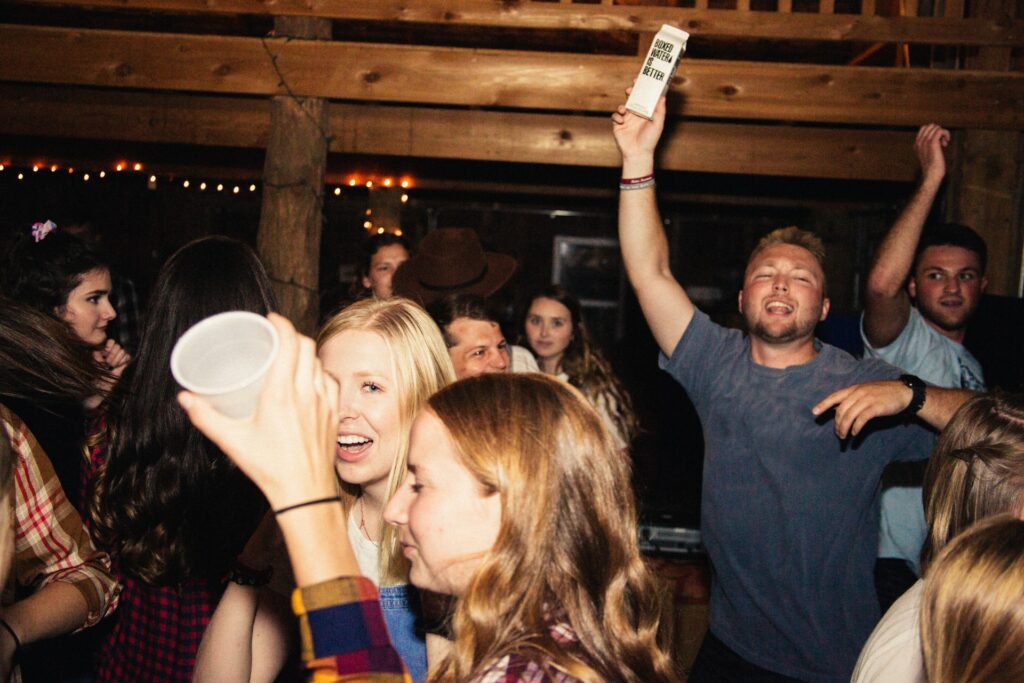The most alcoholic colleges in the US include places of higher education where you may find yourself engaging in more drinking than actual learning. While many of the listed colleges are great places to get an education, it’s important that you or your loved one is aware of the impact that alcohol abuse and addiction can have on a person’s life and future. If a student already struggles with alcoholism, it may be in their best interest to avoid these institutions.
For many young adults, college is the intersection of two experiences: living independently for the first time and reaching the age where they can legally consume alcohol. From parties and dorm rooms to bars and tailgating, alcohol’s influence in college is everywhere and almost inescapable.
15 million undergraduate students enrolled in college in 2020, discovering that alcohol is socially acceptable and often encouraged on campus. Members of fraternities and sororities are more likely to engage in binge drinking episodes than those outside of Greek life at college.
Data from NSDUH 2020 (National Survey on Drug Use and Health) for those aged 18 to 25 shows that:
- More than half report alcohol use in the past month.
- 31% report engaging in binge drinking.
- 9% report heavy drinking.
NIAAA (National Institute on Alcohol Abuse and Alcoholism), reports that 110,000 college students are arrested every year for alcohol-related incidents, including assaults and DUIs (driving under the influence). According to the same data, alcohol is implicated in the deaths of over 1,800 college students each year.
Alcohol may be prevalent, tolerated, and often encouraged in college life, but any form of alcohol abuse can trigger adverse physical and mental health conditions, both short and long-term. Binge drinking and heavy drinking can both heighten the chances of addiction to alcohol developing. Alcohol use disorder – the clinical term for alcoholism – is a chronic and relapsing brain disease. Although incurable, alcohol use disorder usually responds well to a combination of medication-assisted treatment and psychotherapy.
If you are looking for a more sober college experience, today’s guide to college towns with the most alcohol consumption will show you which places to avoid.
Top 5 Most Alcoholic Colleges
- Providence College (Providence, Rhode Island)
- Tulane University (New Orleans, Louisiana)
- Chico and California State University (Chico, California)
- University of Texas (Austin, Texas)
- University of Delaware (Newark, Delaware)
1)PROVIDENCE COLLEGE (PROVIDENCE, RHODE ISLAND)
Rhode Island is the smallest state, but it ranks among the highest in the United States for:
- Alcohol poisoning fatalities.
- Binge drinking.
- Monthly alcohol use.
- Marijuana use.
- Illicit drug use.
Providence College has a reputation for being a party school. Alcohol is ingrained in the culture and normalized.
Although there is no Greek system on campus at PC and participation in religious curricula is mandatory, the students at this Catholic college often head to bars surrounding the campus, working hard and playing hard.
2) TULANE UNIVERSITY (NEW ORLEANS, LOUISIANA)
New Orleans is home to the French Quarter, Bourbon Street, and chaotic Mardi Gras celebrations, as well as Tulane University. According to the local newspaper:
- Almost 90% of students at Tulane report past-month alcohol consumption.
- More than 60% report multiple episodes of high-risk drinking over the previous two week-period.
- Over half of freshmen report high-risk drinking, double the rate of many other universities.
The Big Easy has more bars per capita than most U.S. cities, meaning Tulane University is not the best option for those seeking a more sober college experience.
3) CHICO AND CALIFORNIA STATE UNIVERSITY (CHICO, CALIFORNIA)
Chico is part of the CSU (California State University) campuses and is noted for its drinking culture and party atmosphere.
The college in Chico plays a defining role in the culture and landscape of this small town. With most students of Chico State living close to campus and college residences studding the surrounding area, there is an almost non-stop party lifestyle on tap.
4) UNIVERSITY OF TEXAS (AUSTIN, TEXAS)
Austin, Texas is known as one of the hardest drinking cities in the United States with a vibrant Sixth Street scene feeling like a scaled-down version of Bourbon Street in New Orleans.
Downtown Austin has more bars per capita than any other U.S. city. The same data shows that:
- 60% of Austin over-18s report past-month alcohol use.
- Almost 25% report episodes of binge drinking or heavy drinking.
University of Texas is home to over 40,000 undergraduates, a thriving Greek life community, and a hugely successful athletic program and football team. College football often involves tailgating and drinking while cheering on the home team.
5) UNIVERSITY OF DELAWARE (NEWARK, DELAWARE)
The party scene at University of Delaware is well-documented, ranked by The Princeton Review as the nation’s top party school.
Underage drinking is a serious problem at UD, with the alcohol-related death of Ethan Connolly (19-years old) sparking a lawsuit against the university, the sorority, and the party host. While the judge ruled in favor of University of Delaware, Connolly’s BAC (blood alcohol concentration) was triple the legal limit at the time of the fatal car crash.
The city of Newark recently passed an ordinance enabling law enforcement officers to issue party hosts with civil citations, assuming there are at least four people present and the party in some way endangers health and safety. This law may help to address the drinking problem at University of Delaware.
WHY YOU SHOULD AVOID EXCESSIVE ALCOHOL CONSUMPTION AT COLLEGE
If you don’t struggle with alcohol addiction, you do not necessarily need to abstain from alcohol completely while at college, but you should adhere to moderate drinking guidelines and refrain from episodes of binge drinking.
The abuse of alcohol leads to 25% of college students experiencing academic problems. The most pressing issues triggered by immoderate drinking at college are:
- Missing classes.
- Falling behind in class.
Research suggests that students who reported binge drinking three times each week or more were:
- Five times more likely to miss class.
- Six times less likely to perform effectively in assignments and tests.
The effects of alcohol abuse at college can be even more unsavory, though. An analysis of 1998 to 2014 mortality data shows that more than 1,500 students at college die each year as a result of alcohol-related injuries.
NIAAA data shows that 97,000 students reported sexual assaults or date rapes associated with alcohol abuse.
Alcohol abuse can also increase your risk profile for developing alcohol use disorder. Even if this progressive condition does not manifest while you are at college, it may present in later life unless you address your alcohol consumption after graduating from college. If it’s already too late, we can help you build a firm foundation for sobriety here at Gratitude Lodge.
GET ALCOHOL ADDICTION TREATMENT AT GRATITUDE LODGE

If you are a college student concerned about alcohol abuse, take action before addiction develops and impacts your academic experience.
At Gratitude Lodge, we provide structured treatment programs for alcohol use disorder. We have three luxury rehab centers located in Southern California and multiple rehabs in Orange County. For many people, a supervised medical detox followed by a 30-day residential rehab program offers the smoothest route to recovery. Contact us right here for more information about our inpatient programs.
If you have a less severe alcohol addiction, you could engage with our IOP (intensive outpatient program). This is a more flexible and affordable pathway to sobriety and is usually covered by health insurance. Check your insurance coverage here.
Regardless of the treatment intensity that best suits your circumstances, you will have access to the same services, including:
- Medical detox
- MAT (medication-assisted treatment)
- Psychotherapy (talk therapy like CBT)
- Counseling (individual and group)
- 12-step immersion program
- Family therapy
- Holistic therapy
- Daily meetings
When you are ready to commit to sobriety, we can help you from detox to discharge and beyond here at Gratitude Lodge. Call admissions now at 800-994-2184.




























